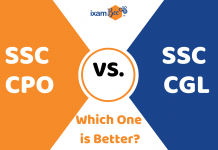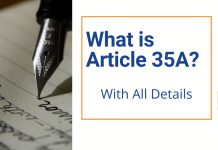You’re not alone if you can’t tell the difference between the World Bank and the International Monetary Fund. Most people have only a hazy understanding of what these institutions do, and even fewer could explain why and how they differ if pressed. Even John Maynard Keynes, a founding father of both institutions and widely regarded as the most brilliant economist of the twentieth century, confessed of being perplexed by the names at the IMF’s inaugural meeting as he thought the Fund should be called a bank, and the Bank should be called a fund. Confusion has reigned ever since.
Together known as the Bretton Woods twins, the IMF and World Bank (with its first group institution IBRD) are the two major international multilateral organizations founded at the Bretton Woods Conference in 1944. The Conference was a gathering of delegates from 44 allied nations. They sought to build a framework for economic cooperation to avoid a repetition of the competitive devaluations that had contributed to the Great Depression of the 1930s.
Difference Between the International Monetary Fund (IMF) and World Bank
The difference between IMF and World Bank lies in their function and purposes. While the International Monetary Fund oversees the stability of the monetary system of the world, the World Bank’s primary goal is to alleviate poverty by offering assistance to middle-income and low-income countries. The headquarters of both these organizations are located in Washington D.C.
Details About Size, structure and composition
| World Health Organization | International Monetary Fund |
| The World Bank Group consists of five international organizations namely, the International Bank for Reconstruction and Development (IBRD), the International Development Association (IDA), the International Finance Corporation (IFC), the Multilateral Investment Guarantee Agency (MIGA), and the International Centre for Settlement of Investment Disputes (ICSID). Let us now take a look at the primary functions of each of these organizations: The International Bank for Reconstruction and Development (IBRD) was created in 1944, and is the oldest member of the World Bank Group. The world’s largest development bank, it provides financial products (loans, guarantees, etc.) and policy advice to help middle-income and creditworthy low-income countries reduce poverty and extend the benefits of sustainable growth to all of their people. The areas of focus for IBRD are agriculture, urban development, healthcare, family welfare, dairy development, etc. The International Development Association (IDA) was established in 1960. It aims at providing loans and grants to the poorest countries that cannot afford to lend money commercially. Its main aim is to further the World Bank’s objective to alleviate poverty by assisting the poorest countries in developing quickly, sustainably, and equitably. Established in 1956, the function of the International Finance Corporation (IFC) is to offer investment, advisory, and asset management services for the development of the private sector of its member countries. The Multilateral Investment Guarantee Agency (MIGA) was formed in 1988. The primary aim of MIGA to promote foreign direct investment into developing countries to support economic growth, reduce poverty, and improve people’s lives. Towards this end, it offers political risk insurance (guarantees) to investors and lenders. The International Centre for Settlement of Investment Disputes (ICSID) was formed in 1966 to offer conciliation and arbitration advice for legal dispute resolution between international investors. Size and Structure The IMF is small (about 2,300 staff members) and, unlike the World Bank, has no affiliates or subsidiaries. Most of its staff members work at headquarters in Washington, D.C., although three small offices are maintained in Paris, Geneva, and at the United Nations in New York. Its professional staff members are for the most part economists and financial experts. | The major functions of the International Monetary Fund include: Facilitating international monetary cooperation; Promoting exchange rate stability and orderly exchange arrangements; Providing assistance in the establishment of a multilateral system of payments and the elimination of foreign exchange restrictions; Assisting the member countries by temporarily providing financial resources to correct maladjustment in their balance of payments. The Board of Governors of IMF consists of one governor and one alternate governor from each member country. For India, the Finance Minister serves as the ex-officio governor, while the RBI Governor serves as the ex-officio alternate governor on the board. Hence, as of April 2020, the position of governor is served by Ms. Nirmala Sitharaman and the position of alternate governor is served by Mr. Shaktikanta Das. The management of the IMF is carried out by the Managing Director or the Chairman of the Board of Executive Directors. Currently, the chairman of IMF is Dr. Kristalina Georgieva. The board of executive directors is represented by 24 directors who are appointed/elected by the member countries. The executive director from India also represents three other countries, namely Bangladesh, Sri Lanka, and Bhutan. Currently, the executive director from India is Mr. Surjit Bhalla. This was a brief overview of the functions of the International Monetary Fund and the World Bank. Go through each of them in detail to cover this topic in its entirety. Keep reading current affairs and keep yourself up to date on all the recent developments regarding the release of funds by the World Bank and IMF to support any country. Questions from these areas are regularly asked in the RBI Grade-B Main exam. Size and Structure The structure of the Bank is somewhat more complex. The World Bank itself comprises two major organizations: the International Bank for Reconstruction and Development and the International Development Association (IDA). Moreover, associated with, but legally and financially separate from the World Bank are the International Finance Corporation, which mobilizes funding for private enterprises in developing countries, the International Center for Settlement of Investment Disputes, and the Multilateral Guarantee Agency. With over 7,000 staff members, the World Bank Group is about three times as large as the IMF, and maintains about 40 offices throughout the world, although 95 percent of its staff work at its Washington, D.C., headquarters. |
Some Major Differences between IMF and World Bank
| Basis for Comparison | IMF | World Bank |
| Meaning | An international organization maintaining the global monetary system is the International Monetary Fund. | A global organization established to finance and advise the developing nations, to make them economically developed is World Bank. |
| Focus on | Economic Stability | Economic Growth |
| Size | 2300 staff members | 7000 staff members |
| Organizational Structure | It is a single organization with four credit lines. | It has two major institutions, namely International Bank for Reconstruction and Development (IBRD) and the International Development Association (IDA). |
| Membership | 188 countries | IBRD – 188 countriesIDA – 172 countries |
| Operations | Provides assistance | Facilitates lending |
| Objective | To deal with all the issues related to the financial sector and macroeconomics. | To lessen poverty and promote the long-term development of the economy. |
Conclusion
The IMF and World Bank are the two Bretton Woods institutions, formed in 1944. There are many things in common between these two international organizations. Both of them support the international monetary and economic system. Almost all the countries of the world are members of these two organizations.
Also Read:
RBI Grade B Phase 2: Tips to Qualify Descriptive English (Reading Comprehension)
RBI Grade B 2021: How to Approach ESI Descriptive Paper?
RBI Grade B 2021 Phase 2: Revised Strategy for ESI and FM
RBI Grade B Phase 2: Descriptive Writing Strategy and Tips
Get Free Online Test Series, GK updates in form of Beepedia, as well as latest updates for Bank PO, Bank Clerk, SSC, RBI, NABARD, and Other Government Jobs.











